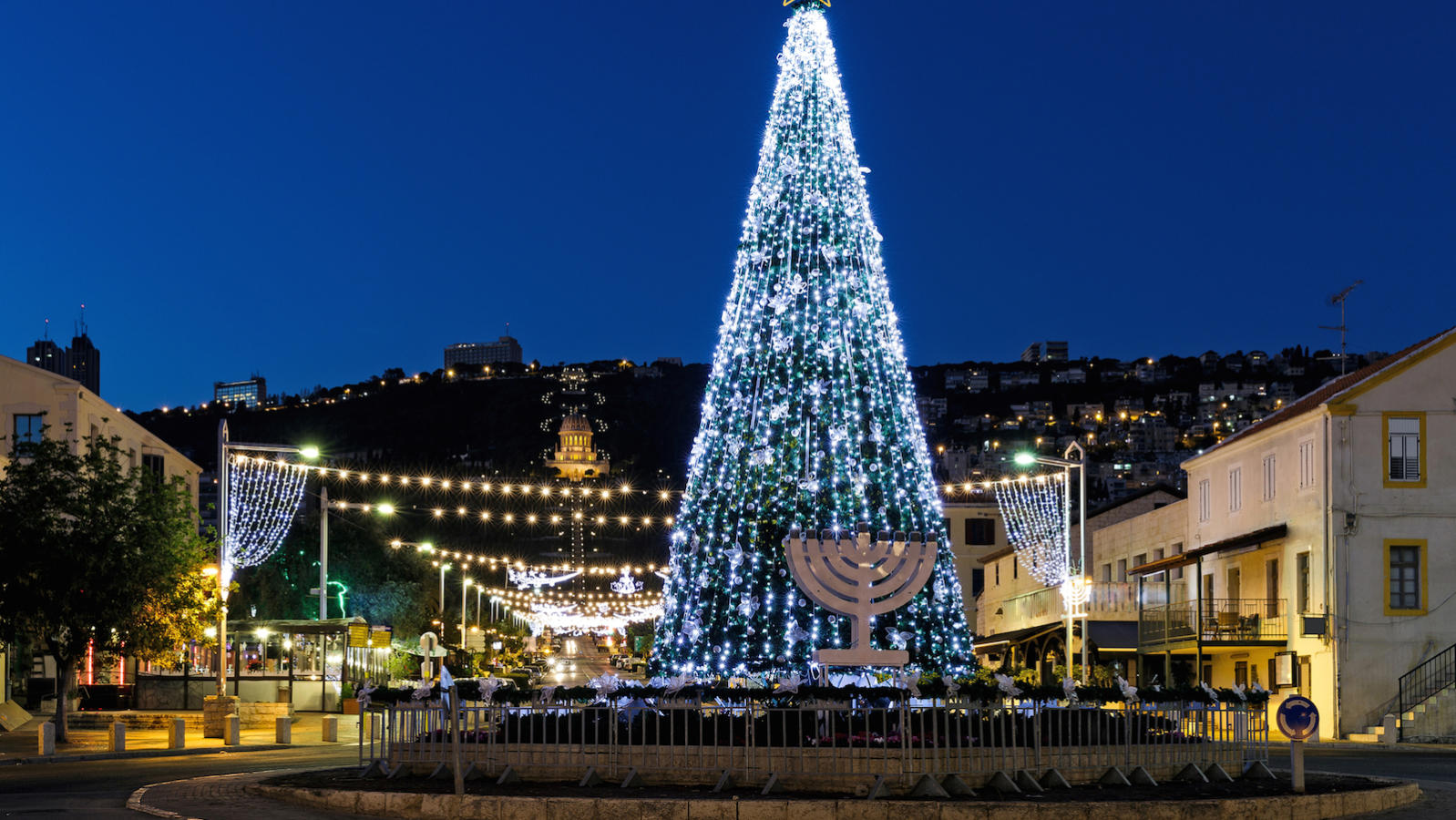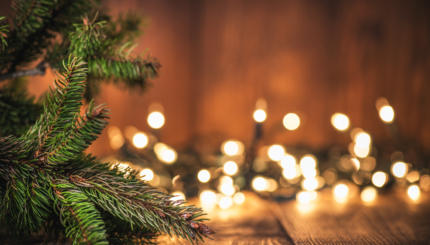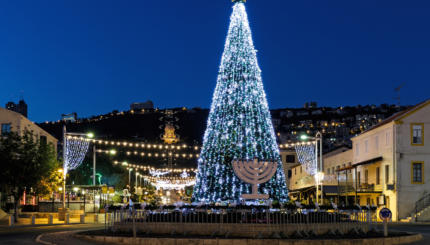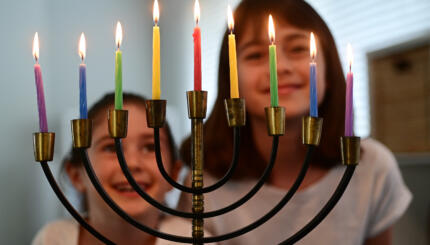Question: My kids (ages 5 and 8) really love Christmas trees. They know that I won’t have one in our house because we’re Jewish, but recently someone told them about a bush, and they’ve been asking if we can get one of those. How can I explain to them my discomfort with the tradition without seeming like a Grinch?
–Henry, Nashville
Answer: Oy. I try to be impartial about these things, Henry, but I’m with you when it comes to Hanukkah bushes. I just don’t like them.
First of all, you might want to get your hands on the children’s book by Susan Sussman called There’s No Such Thing as a Chanukah Bush, Sandy Goldstein. The situation it deals with is not precisely the same as yours, but reading the book might be a good way to start the conversation with your kids.

Help us keep Jewish knowledge accessible to millions of people around the world.
Your donation to My Jewish Learning fuels endless journeys of Jewish discovery. With your help, My Jewish Learning can continue to provide nonstop opportunities for learning, connection and growth.
The concern I think most people have with Hanukkah bushes is that they are too close for comfort to Christmas trees. There’s not much difference between the two, as far as I can tell. Slapping a Jewish star on something and then calling it a Jewish ritual item is like putting a lion mask on your dog, having him run around in your back yard, and calling it a safari.
When you’re talking with your kids about this, you can discuss how Jewish holidays aim to keep the traditions and history of the Jewish people alive. You can look at other ritual items you might have in your home — a seder plate, a siddur (prayer book), a noisemaker, etc. — and talk about how all of them are connected to things in Jewish history. And then talk about a Hanukkah bush, and how it really doesn’t have a Jewish history at all.
One thing that I think is helpful in this kind of situation is focusing on the ways that your kids can celebrate with others without necessarily taking on their ideology. Your kids can visit friends who have Christmas trees, and can enjoy the trees that are out in public spaces. But they should do this to be happy for others, not to take on non-Jewish rituals as their own.

The best way to combat Christmas envy is to amp up your own Hanukkah celebrations in ways that aren’t purely derivative of Christian traditions. Consider making your own window decorations, to help publicize the of lighting Hanukkah candles. Make Hanukkah foods from scratch (latkes and sufganiyot, or doughnuts, are Ashkenazic options, or try Sephardic/Mizrahi bimuelos and atayef), and set up a dreidel tournament. You can even have a contest in your family to see who can make the most interesting hanukkiah (Hanukkah ) from things around the house. The eight nights of Hanukkah are also a great opportunity to invite friends to come celebrate with you.
I think the key to really getting your children to enjoy all of these holiday activities is to steer the conversation away from direct comparisons to Christmas. Celebrating Hanukkah shouldn’t be about providing an alternative to Christmas. If you bill it that way, you’ll always lose out to Santa and Christmas trees. Hanukkah is about focusing on maintaining a Jewish identity even in the face of a strong cultural current that defies that sentiment.
Another way to focus the discussion is to remind your kids about all of the holidays in the Jewish calendar. After Hanukkah we have Tu B’Shevat to look forward to, and then Purim and Passover. You can talk about the traditions that go with those holidays, and all the exciting and fun traditions that lead up to those holidays, whether it’s making small gifts for friends at Purim, or searching the house for hametz (leavened foods) at Passover.
If you own a children’s book or game about the Jewish calendar, now is a great time to bring it out, and if you have family pictures from Jewish holidays in years past, this is a great time to look at them. Kids love looking at how much they’ve changed and grown up, and enjoy reminiscing about how they celebrated holidays–buying new clothes for Rosh Hashanah, eating together in a sukkah, etc. As the secular year comes to a close, you can take the time to look forward to the whole cycle of wonderful Jewish holidays that will begin again next year.
Good luck, and chag urim sameah (Happy Hanukkah)!
Explore Hanukkah’s history, global traditions, food and more with My Jewish Learning’s “All About Hanukkah” email series. Sign up to take a journey through Hanukkah and go deeper into the Festival of Lights.
seder
Pronounced: SAY-der, Origin: Hebrew, literally “order”; usually used to describe the ceremonial meal and telling of the Passover story on the first two nights of Passover. (In Israel, Jews have a seder only on the first night of Passover.)

Help us keep Jewish knowledge accessible to millions of people around the world.
Your donation to My Jewish Learning fuels endless journeys of Jewish discovery. With your help, My Jewish Learning can continue to provide nonstop opportunities for learning, connection and growth.



